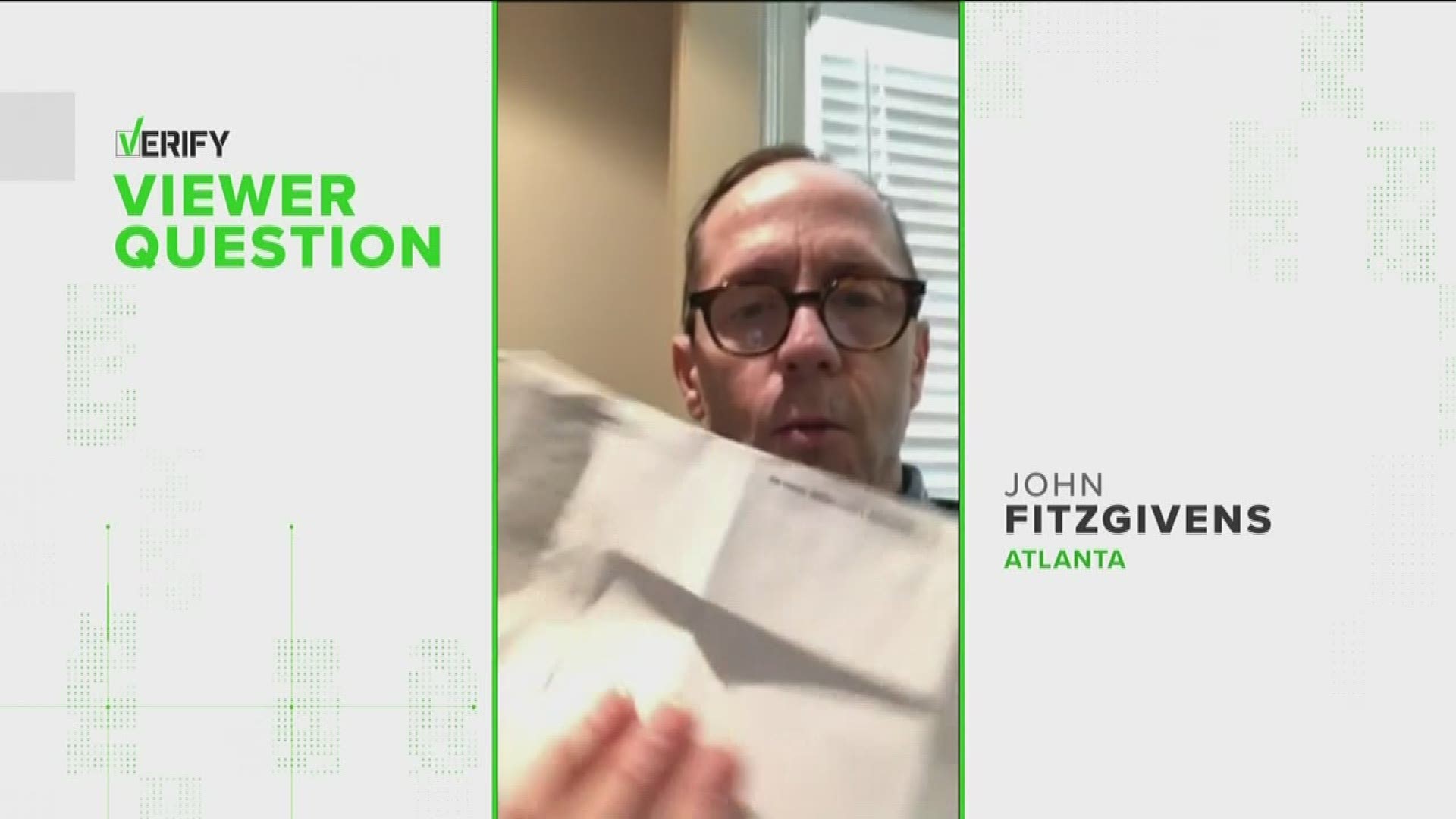ATLANTA — It's 2020 and privacy isn't something we have a lot of. Social media and our phone applications are making our information widely accessible online.
From apps that share your location to us willingly sharing information about our daily lives on Facebook.
But would you willingly fill out a survey that comes via snail mail to your home?
Well, the Census Bureau relies on it. Which brings to light others out there impersonating the Census Bureau to get your information.
The Better Business Bureau (BBB) says these scams are hard to spot, but if you know how the real Census Bureau works, then it will help protect you from falling victim to a fake one.
First let's start with why the Census Bureau is important.
"The Census Bureau measures change, gathering important data that help shape decisions that impact you and your community," they state on the official Census Bureau website.
The Census Bureau requests information through many forms of communication, including phones calls, emails, mail, fax, and in-person.
They collect a lot of information about yourself and your family, but the BBB says they will never ask for "your full social security number, money, donations, anything on behalf of a political party, your full back or credit account numbers, or your mother's maiden name."
BBB Tips to Avoid Census Scams:
- Never give out your social security number. Census takers will never ask for your social security number, bank account number, credit card number, money or donations.
- Census takers will never contact you on behalf of a political party. If someone calls on behalf of a political party that claims to be from the census, hang up.
- Make sure you respond to the census through Census.gov, the official website. Your regional Census Bureau may also be able to help.
- If something sounds suspicious, confirm it by calling the government agency directly or checking the government agency’s website. Don’t click on any links in an unexpected email. Instead, type the official URL into your browser or do a web search to find the right website. Call a trusted phone number other than one provided by the caller to verify the caller’s identity.
- Don’t click, download, or open anything that comes from an anonymous sender. This is likely an attempt to gain access to your personal information or install malware on your computer.
If you have fallen victim to a Census Bureau impersonator, or another scam, the BBB says to report them on their scam tracking system.
The Census Bureau is also hiring for "hundreds of thousands of temporary positions across the country" to help with the 2020 Census count.
Click here to apply.
RELATED HEADLINES |

